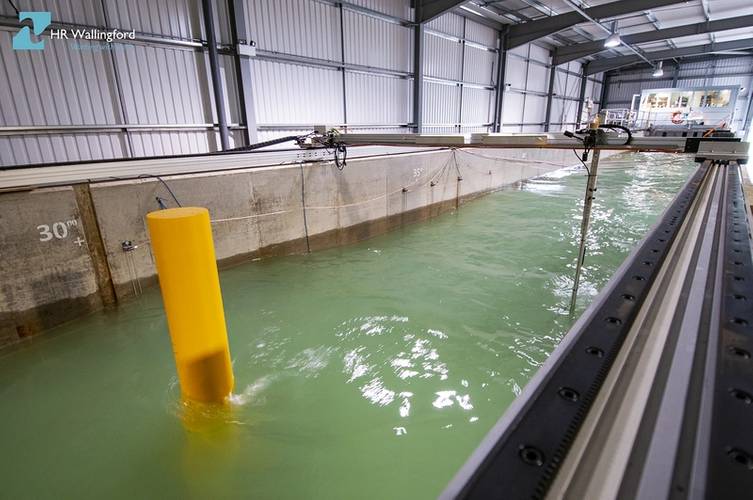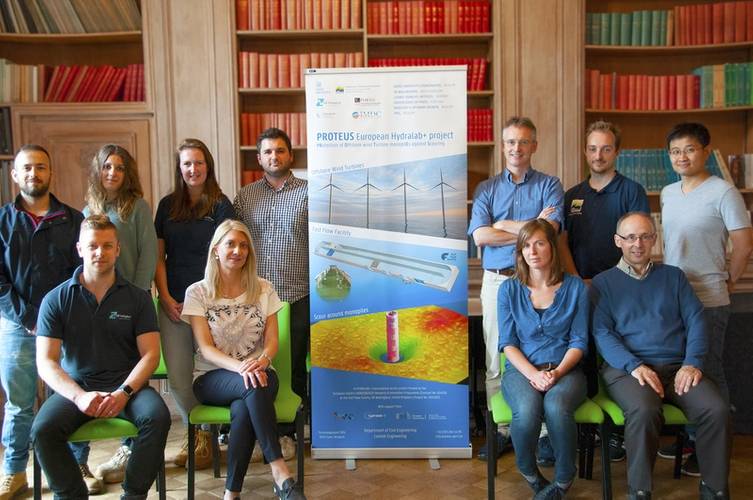Researchers Set Out to Future-proof Offshore Wind Turbine Monopiles
A new research project aims to improve the design of scour protection around offshore wind turbine monopiles, as well as future-proofing them against the impacts of climate change.
'The effort, part of PROTEUS, an EU-funded Hydralab+ project, will see leading scour researchers from Ghent University, Leibniz University Hannover and the University of Porto, alongside IMDC nv and the Department of Mobility and Public Works (Belgium), collaborate at HR Wallingford’s Fast Flow Facility (FFF).
PROTEUS, which stands for the ‘PRotection of Offshore wind Turbine monopilEs against Scouring’ will facilitate the conducting of a series of large scale experiments over a seven-week period in the FFF flume at HR Wallingford’s U.K. physical modelling facilities.
Dr. David Todd, Business Development Manager for Research and Commercialization at HR Wallingford, said, “Research into scale effects requires large scale model tests. The Fast Flow Facility, which is 75m long x 8m wide and contains a 1m deep sediment pit, is one of the world's largest marine test facilities, and as such is ideal for carrying out this large scale testing. The flume has been specially equipped for scour studies, and has been designed to be able to generate a unique combination of waves and strong currents which are key to accurately testing scour protection.”
Although recent improvements to infrastructure and higher voltage cables mean that offshore wind energy is now cheaper than new nuclear power, further cost savings can be achieved.
Lead researcher, Prof Peter Troch, Head of the Civil Engineering Department of Ghent University, and coordinator of the PROTEUS project, said, “Foundation costs represent 20 percent of the total costs in the case of a monopile, of which a significant proportion is related to the foundation’s scour protection. This makes it vital to improve and reduce the cost of monopile scour protection design.”
Lifetime extension is another promising route to reducing the costs of offshore wind turbines, so examining the foundation and behavior of the scour protection around the monopile is another element of this research project.
Prof Troch added, “We also need to consider the influence of climate change which will increase the design storm conditions and influence the scour protection stability. Therefore, research towards a risk-based design will help to evaluate how well scour protection which is already installed performs, and improve the design of future scour protection adapted to climate change.”
Hydralab+ which is funded by the EU’s Horizon 2020 Research and Innovation Programme brings together facilities and researchers in experimental hydraulic and hydrodynamics.
Partners involved in PROTEUS are: Department of Civil Engineering at Ghent University, HR Wallingford (UK), the Ludwig-Franzius Institute for Hydraulic, Estuarine and Coastal Engineering at the University of Hannover, the Faculty of Engineering at the University of Porto, the Geotechnics division of the Belgian Department of Mobility and Public Works, and International Marine and Dredging Consultants (IMDC nv).




